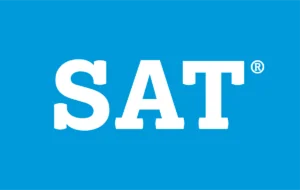As students prep for college admissions, the debate between SAT and ACT scores alongside GPAs remains a crucial consideration. Which test truly defines readiness, and how do these metrics influence one’s college journey?

✅ AI Essay Writer ✅ AI Detector ✅ Plagchecker ✅ Paraphraser
✅ Summarizer ✅ Citation Generator
Key Takeaways:
- Both SAT and ACT are significant for college admissions, but neither singularly defines a student’s potential.
- The SAT and ACT have distinct structures and purposes, with the former being more aptitude-based and the latter more curriculum-based.
- Despite the optionality of essays, the choice to take them depends on the student’s preference and the requirements of target colleges.
Choosing between the SAT and ACT is a pivotal decision for many high school students. With both aiming to gauge college readiness, understanding their differences can guide students to make an informed choice.
Does the SAT Truly Define You?
The journey to college is one often riddled with anxieties about academic performance, especially when it comes to standardized test scores and GPA. For many, the weight of an SAT score feels monumental. But how does this number, alongside a high school GPA, truly impact one’s college admission prospects? Based on the sentiments of individuals who have gone through the experience, there seems to be a more nuanced story to tell.
People often suggest that students with a combination of a low GPA but high SAT score may find open doors at second or third-tier universities. Institutions such as Ohio State, University of Miami, UC Davis, and University of Arizona frequently come up in these conversations. However, as one specialist recounted,
“You won’t get into the top tier, including Stanford, the Ivies, MIT, etc for undergraduate, so scratch those off your list.”
There are instances where a high SAT score can turn the tide in unexpected ways. An anecdote from a college fair detailed how after sharing a high SAT score of 1590, an individual was immediately introduced to a scholarship program, eventually resulting in a full scholarship. It’s clear, in some cases, the SAT can make a significant difference. Moreover, working with an expert SAT exam tutor will help increase your test scores.
However, the value of an SAT score, or GPA for that matter, goes beyond just college admissions. For many, these metrics come laden with expectations and societal pressure. One person recounted how their SAT score mattered immensely to their guidance counselor, parents, town, and extended family. To these groups, it represented a tangible yardstick for success. Yet, for this individual, the SAT and ACT “didn’t matter at all.” They argued against defining one’s worth based on test scores, stating,
“I couldn’t comprehend that how I scored on a test would forever represent my ‘value’ as a human being.”
This person’s story further drives home the idea that academic metrics, while important, aren’t the sole determinants of future success. Despite graduating with average scores and in the bottom 20% of their class, they went on to found a successful company, emphasizing that “Nobody—not a client, not an investor, not a partner, not a peer—has ever asked me what I got on my SAT or ACT.”
The overarching sentiment seems to be that while SAT scores and GPAs play a role in college admissions, they do not singularly define one’s potential or future achievements, a perspective that may become even more relevant as the SATs will be different next year. As with many aspects of life, the path to success is multifaceted, and every individual journey holds its unique value and lessons.
SAT vs. ACT: Which Test Is Right for You?
When thinking about college, one of the big decisions high school students face is which entrance exam to take: the SAT or the ACT. Both tests aim to measure a student’s readiness for college, but they have their differences. So, how do you choose the right one?
Firstly, let’s look at some numbers. Even with the challenges of the COVID-19 pandemic, a lot of students are still taking these exams. In 2022, 1.7 million students took the SAT, and 1.35 million went for the ACT. Some students even took both. But why? Isn’t one enough? Let’s break it down.
Colleges in the U.S. usually don’t have a preference for one test over the other. Ginger Fay, from Applerouth Tutoring Services, likens this to parents having two children: they love both equally. What matters to colleges is how well you do on whichever test you choose.
The main thing that sets the two tests apart is their structure. For a long time, people viewed the SAT as a test that measures natural talent or aptitude, while the ACT seemed more about what students learned in school. Jaekyung Lee, a professor in New York, says that the ACT still feels more connected to high school subjects, even though the SAT has changed over the years to be more like it.
Now, if you’re considering taking both tests, think again. Both the SAT and ACT need different strategies. Instead of juggling the two, it’s smarter to get really good at one. A simple way to decide which test feels more comfortable is by taking a practice test for each. As Laurel Hanson from Kaplan suggests, it’s about finding which test you prefer, not just which one you score higher on. After all, to get a great score, you’ll need to invest time and effort into preparing.
One common misconception about the ACT is that it’s mainly for students who are good at science and math because it has a science section. But actually, that section is more about reading and interpreting data. Jolyn Brand, an expert in college consulting, reminds students that you need good reading skills for this section. To figure out which test might suit you better, she suggests taking a practice test for both and comparing how you felt during each one.
There’s also a decision to make about the ACT’s optional writing test. It costs an extra $25 and is a 40-minute essay. Erika Tyler-John from Magoosh says that even though most colleges don’t require this essay, having it can be a bonus for your application. On the other hand, Hanson suggests checking with the colleges you want to apply to. If they don’t need the essay and you’re confident in your writing skills, skipping it can save you time during the test.
Interestingly, fewer students are choosing the ACT’s essay option now. In 2022, just over 333,000 students took it, down from 680,000 in 2020. The SAT had an optional essay too, but they decided to drop it in 2021.
In conclusion, the decision between the SAT and ACT boils down to personal preference. Start by understanding the structure and content of each test, take a practice test for both, and see which one feels right for you. Remember, colleges don’t favor one test over the other. What they want to see is your dedication and how well you do on your chosen test. Good luck!
| Criteria | SAT | ACT |
| Popularity | Pros: 1.7 million students took the test in 2022. | Pros: 1.35 million students took the test in 2022. |
| Structure | Pros: Modified to be more curriculum-based. | Pros: Closely associated with high school curriculum. |
| Cons: Previously seen as an aptitude test. | Cons: Contains a science section that might be misleading. | |
| Flexibility | Pros: College Board offers other services like AP exams. | Pros: Focused mainly on its namesake test. |
| Cons: Dropped the optional essay in 2021. | Cons: Still offers an optional writing test, which might be unnecessary for some students. | |
| Preparation | Cons: Requires different strategies than the ACT. | Cons: Requires different strategies than the SAT. |
| Perception | Pros: Seen as more of an aptitude test (though this distinction is lessening). | Pros: More curriculum-based, which might appeal to students familiar with high school subjects. |
Follow us on Reddit for more insights and updates.





Comments (0)
Welcome to A*Help comments!
We’re all about debate and discussion at A*Help.
We value the diverse opinions of users, so you may find points of view that you don’t agree with. And that’s cool. However, there are certain things we’re not OK with: attempts to manipulate our data in any way, for example, or the posting of discriminative, offensive, hateful, or disparaging material.